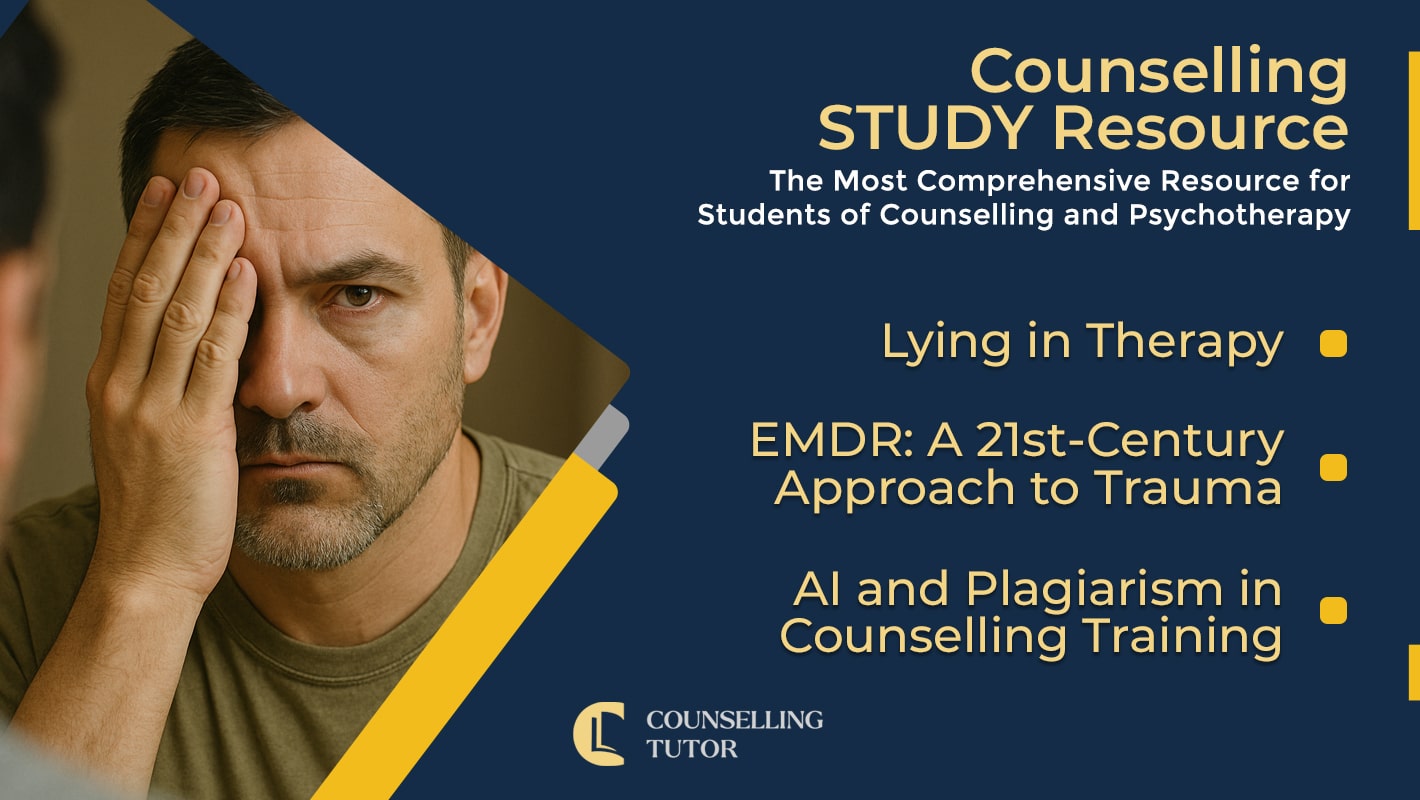See Counselling Skills Used in Real Sessions by Qualified Therapist
Real Sessions – Real Presentations – Real Skills
Gain the competence and confidence to use counselling techniques effectively!

In Episode 356 of the Counselling Tutor Podcast, your hosts Rory Lees-Oakes and Ken Kelly take us through this week’s three topics:
Firstly, in ‘Ethical, Sustainable Practice’, they explore the sensitive topic of lying in therapy, examining why clients may lie or conceal information through a trauma-informed perspective and how therapists can respond with compassion.
Then in ‘Practice Matters’, Rory speaks with Andrew Kidd about EMDR therapy – what it is, how it works, and why it’s considered a cutting-edge 21st-century therapeutic intervention.
And finally, in ‘Student Services’, Rory and Ken discuss the rising concern of AI and plagiarism in counselling training, including guidance for ethical use and how assessment may evolve.
In this section, Rory and Ken examine lying in therapy, unpacking the nuances behind client dishonesty and offering guidance on how therapists can navigate concealment with empathy.
Key points discussed include:

Real Sessions – Real Presentations – Real Skills
Gain the competence and confidence to use counselling techniques effectively!
In this week’s ‘Practice Matters’, Rory speaks with Andrew Kidd, BACP senior accredited counsellor and EMDR Europe accredited practitioner, about EMDR as a powerful method for trauma reprocessing.
Key points from this conversation include:

On-demand access to a rich lecture library covering theory, skills, and professional development for counselling students—Mapped to the UK awarding body criteria
“The Student Library has been BRILLIANT, I can’t recommend it enough!
It has been a lifeline in helping me prepare for practice and my first clients. If you’re considering it, go-for-it, it’s absolutely worth it!”
Kelly – Graduated and now in practice.
In this section, Rory and Ken discuss the impact of AI tools like ChatGPT on assignment writing and how to ethically and responsibly integrate technology into counselling education.
Key points include:
Lying in Therapy

Get on-demand Certified CPD that is implementable in your practice
